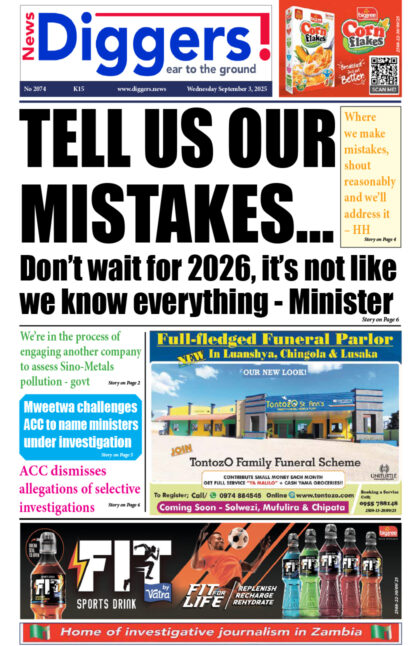More than US $1.3 billion was directly invested into the Zambian property market between 2014 and 2017, says Africa Property Group managing director Carl Johan Collet.
And Collet says the huge share of this investment has been by Foreign Direct Investment (FDI) with Lusaka’s retail sector generating a huge chunk of it.
According to a statement, Collet disclosed that Zambia’s property market had received investments worth around US $1.3 billion in the three-year time period between 2014-2017.
“There is a lot more local and international money in Zambia’s property market than people think. Between 2014 and 2017, we have tracked more than $1.3 billion in direct investment into the Zambian property market. We have tracked more than $715 million in FDI with 74.6 per cent invested into Lusaka and the remainder into the Copperbelt region and Livingstone. During the same period, local institutional investors (pension funds and insurance companies) have invested $445 million, and local developers have invested $80 million in new developments. Having spent four years tracking foreign and local investment into Zambian commercial real estate, the money invested by international and domestic institutional investors into different sectors certainly paints a bullish and distinct picture of the country’s real estate market. The majority of FDI [like] 56 per cent to be exact has gone into cash flow generating properties, while 44 per cent have gone into the development,” Collet stated.
He disclosed this ahead of the 3rd annual ZamReal Property Forum scheduled to take place on August 21 at the Taj Pamodzi Hotel.
For Collet, the growth in the retail sector and investment has highlighted distinct trends in appetite between local investors and international investors.
“As a local developer in the retail sector, we have noticed that 5,000 square metres below $8 million is optimum for the local pension funds. Also, the internationals only want to buy at $20 million and up. Assets valued in between these figures are struggling to attract buyers. Zambia is intriguing, and in our research, we’ve begun to call this the dead zone. The Zambian market is dynamic, and our purpose in releasing this first report is to create transparency in the market and encourage others to share their information, which we believe will result in more investment,” stated Collet.























